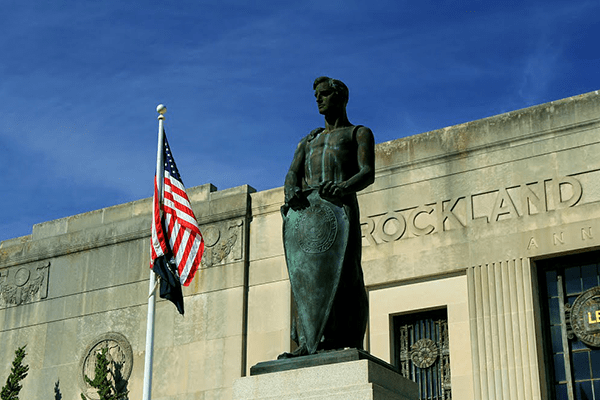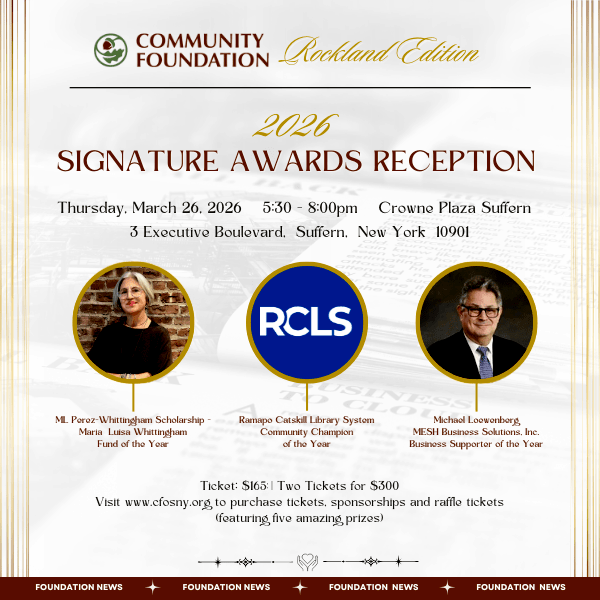|
RCBJ-Audible (Listen For Free)
|
Judge Reaffirms Decision Upholding Term Limits In Town of Clarkstown Clearing Path For 2023 Nov. Election
By Tina Traster
The Town of Clarkstown’s January vote to repeal its term limits law was illegal, according to a judge who previously dismissed Supervisor George Hoehmann’s case to have the term limit law declared invalid.
Rockland County Supreme Court Justice Amy Puerto, who has been presiding over the term limits case, ruled Friday that the January 4th local law repealing term limits by a 3 to 2 vote was “illegal, invalid, null, and void.” The judge also affirmed her earlier ruling that the town can only repeal the term limits law by a “supermajority,” which requires four council votes.
Conway, along with the intervenors, secured the order that upheld the term limits law, and was not able to switch sides and argue that the 3-2 repeal was valid.
Last December, Town Supervisor George Hoehmann, Councilman Don Franchino, and resident Thomas Foley, filed a lawsuit asking the court to find Clarktown’s term limits law invalid. In 2014 Clarkstown adopted a term limits law that precludes an elected official from serving more than eight consecutive years in the same office. The petitioners had hoped to prevail on the theory that the failure to hold a public referendum when the law was passed made the law invalid. At issue, they claimed, all laws containing supermajorities require public referendums.
However, the court found the requirement of a referendum to be “procedural” and dismissed the case last month based on the statute of limitations. Town Deputy Attorney Kevin Conway, who was defending the town, supported the arguments raised by an attorney hired by intervenors Patrick Carroll and Frank Borelli, the two town council members who voted against repealing term limits. Daniel Szalkiewicz, of Daniel Szalkiewicz & Associates successfully argued that a challenge to the term limits law should have been brought within four months after the town passed it.
In upholding Clarkstown’s eight-year term limits law, the judge precluded Hoehmann’s from running again for town supervisor. Puerto focused her ruling on the premise that the Plaintiffs claims are time-barred by the statute of limitations. She also ruled the supermajority requirement did not in and of itself invalidate the law.
While the case was pending, and despite the requirement of four votes to repeal the law, the town passed a local law on January 4th repealing the term limit law with only three votes. The local law was sent to the Secretary of State and the term limit law was removed from the Town Code, forcing Carroll and Borelli to file an additional lawsuit under Article 78 to invalidate the repeal, prohibit the town from repealing with other than a supermajority, and to reinstate the original law as written.
Despite voiding the January repeal, the judge did not specifically reinstate the local law in her order as requested by the petitioners, but she did make it clear that the vote to repeal in January was illegal, null and void, likely clearing the path to have the term limit law reinstated in the Town Code.
In response to the filing of the Article 78, Conway moved to dismiss the case, but the court found his efforts “procedurally defective and without merit” because the court had already upheld the supermajority requirement. The judge also found Conway’s position to be “barred by the doctrine of inconsistent positions.” The doctrine precludes a party “who assumed a certain position in a prior legal proceeding and who secured a judgement in his or her favor from assuming a contrary position in another action simply because his or her interests have changed.” Conway, along with the intervenors, secured the order that upheld the term limits law, and was not able to switch sides and argue that the 3-2 repeal was valid.
The Clarkstown term limit law was passed more than eight years ago by a unanimous vote of the town board. Hoehmann championed the law and voted affirmatively for term limits at the time.
Candidates have been knocking on doors to collect petition signatures for the Nov. 2023 election. The deadline to collect signatures is April 6.














